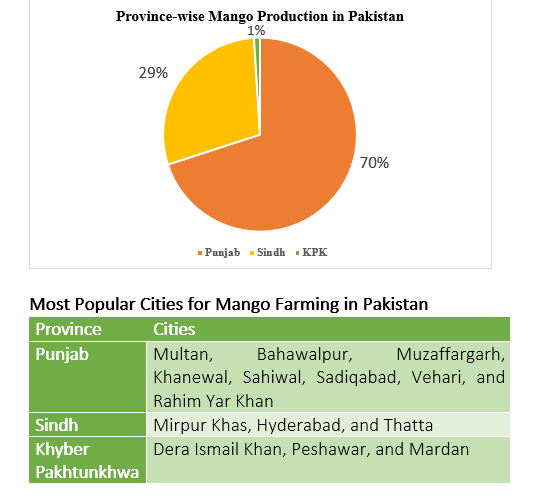INP-WealthPk
Azeem Ahmed Khan
The output of mangoes in Pakistan has dropped for the second consecutive year in 2023 due to rapidly changing climatic conditions. Mango crops need warm weather to grow, but winters are getting longer in Pakistan, which is affecting mango production. Due to the unusually cool summer this year, mango producers have also experienced pest infestations. Hot temperatures are required for both pest control and the proper nurturing of mangoes. Mango farmers are worried as their income is directly linked to the production quantum, and pesticides are not giving the desired results. Mango trees give optimal production if the weather starts getting warm in March. An extended winter season means the flowering will be less, and so will be the production.
"Pakistan has been facing gradual climate change since 2013, but now it is changing at a rapid pace," Patron-in-Chief of All Pakistan Fruit & Vegetable Exporters, Importers, & Merchants Association (PFVA) Waheed Ahmed told WealthPK. The year 2022 was the worst in Pakistan's history for fruit and vegetables. “Not only was the summer season exceptionally hot, but the monsoon floods devastated fruit and vegetable fields and orchards. Last year's mango crop was damaged by more than 50%, dates by 80%, onion and potatoes by 90%, and bananas by 45%, while this year's mango production is expected to fall by 20%," Waheed Ahmed feared.
Global warming is changing weather patterns as well as the types of diseases affecting mango trees. "Researchers and provincial agricultural departments are responsible for educating farmers on how to combat the negative effects of global warming, which have been felt more strongly for the last three years in Pakistan,” he said. Pakistan is the world's fifth-largest producer of mangoes, after India, China, Thailand, and Indonesia. According to the Trade Development Authority of Pakistan, mango is the second-largest fruit crop after kinnow among a wide range of fruits produced by the country.
"The country on average produces about 1.8 million metric tonnes of mangoes; however, the changing climate is estimated to reduce the output to 1.44 million metric tonnes this year," the PFVA patron-in-chief said. “The export of mangoes has already begun, and this year Pakistan intends to export 125,000 metric tonnes, which will fetch $100 million in foreign exchange,” he estimated.
Mangoes cultivated in Pakistan are in great demand all over the world because of their distinctive flavour and enticing aroma. Pakistan's main export destinations are the Gulf countries, Iran, Central Asian states, and the United Kingdom, while Europe, Canada, America, and Japan are other important markets.
Approximately 50% of mangoes are shipped by sea to the Middle East and East Asia, 35% by land to Iran and Afghanistan, and 15% by air to Europe, Canada and the United States. In addition to insect infestations and climate change, Pakistani mango farmers and exporters are also concerned about rising air and sea fares, packaging costs, and domestic transportation expenses. Mango is the national fruit of Pakistan and is referred to as the ‘King of Fruits’. Punjab province produces over 70% of the country's fruit, Sindh 29%, and Khyber Pakhtunkhwa 1%.

Mango trees in Pakistan may reach a height of 40 feet; therefore, pickers must scale the trees to a height of 30 feet to harvest the fruit, while workers on the ground keep watch for the falling fruit. Some of the fruit is damaged when falling to the ground, which reduces its market value. Mango trees grow to a height of 8 to 10 feet in various other regions of the world, making it easy and safe to harvest the fruit. In comparison to towering trees, dwarf trees also produce more fruit, and there is no waste or damaged fruit.
Waheed Ahmed said, "We have worked with the government and academia over the past three years to reduce the height of mango trees, but it will take some time for the results to show." Some of well-known Pakistani mango varieties include Samer Chaunsa, Sindhri, Anwar Ratol, Dusheri, White Chaunsa, Langra, Gulab Khas, Swarnarice, Baganpalli, Neelum, Malda, Samer Bahisht, Fajri, Baigan Phali, Azeemo Wala and Sunera.
"Mangoes such as Chaunsa and Sindhri are brands of Pakistan. We export our top-quality varieties since appearance comes before flavour when selling mangoes in the world market," Waheed Ahmed said. He also dispelled the widespread belief that the best quality mangoes were all exported, leaving the locals without any good variety to eat.
Credit: Independent News Pakistan-WealthPk




